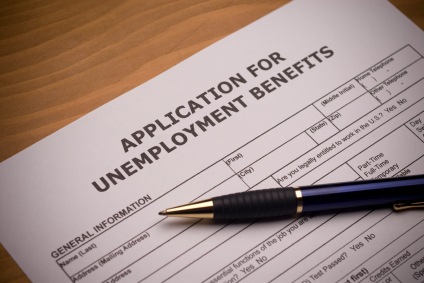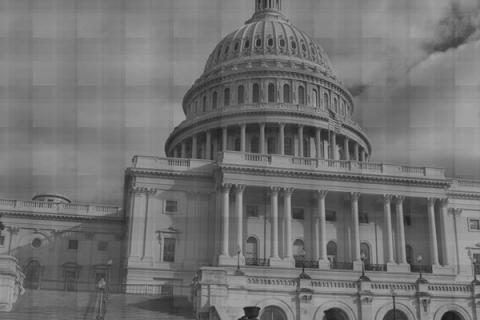This nasty period of high unemployment that has plagued the U.S. economy since 2009 will not come to an end until policymakers begin to think more economically.
It's unfortunate that sound economic thinking doesn't necessarily make for great cable news soundbites, nor rousing campaign trail speeches, because if policymakers want to get unemployment (which has been above 8% since the beginning of 2009) under control, they're going to need to set aside the flashy slogans, vague platitudes, empty promises, and partisan talking points in favor of a rigorous inquiry into the economic causes of unemployment and the solutions that will help create more sustainable jobs for Americans.
One of the most persistent problems related to the issue of unemployment might be the mere fact that policymakers focus so heavily on it in the first place, absent of any context, as a single, isolated problem to be solved on its own, not as a symptom of something deeper happening in the economy. As a result, the underlying causes are seldom examined, when it's the causes that matter most in rectifying the problem. If the problem were simply that not enough people have jobs, the government could solve that problem tomorrow by drafting every single unemployed person into the military and paying them a salary to move piles of rocks around, dig trenches, or any other make-work project that a bureaucrat can devise. The unemployment rate could theoretically be reduced to functionally 0% overnight. Problem solved, right? Wrong.
The paychecks these newly-employed workers would be getting have to come from somewhere. The government would be taking tax dollars from the economy and using those to pay the workers, so there's an opportunity cost. While it would be nice to see the workers getting a paycheck and making a living again, the economist would realize that the money to pay their salaries had to come from somewhere else in the first place. Imagine scooping a bucket of water up from the deep end of a swimming pool and dumping it in the shallow end on the other side. No matter how many times you do it, you'll never raise the level of the water. Likewise, when the government makes work for those seeking jobs, or continues to extend unemployment benefits, it isn't creating new wealth-- it isn't raising the level of the water. Instead it's just moving money around within the economy.
The economist would ask if the money is being moved from a less productive use to a more productive one. In the military draft / "moving rocks" illustration the money obviously isn't being allocated more productively. If it had remained in the economy it would have automatically sought out a more productive application. Ideally, the profit motive of capital markets drives money to its most productive uses, to investments in capital and labor (which means jobs) that create even more money, more wealth, higher standards of living, and yes-- more jobs. Unfortunately, government programs aimed at alleviating unemployment are typically not much better than paying unemployed people to move a bunch of rocks around. They effectively destroy productive capital that would have created a sustainable, productive job by removing it from the economy and misappropriating it to a less productive use paying the temporary salary of an unsustainable job.
The real measure and root cause of an economy's health is productivity, not employment. A productive economy creates jobs. A productive economy will have a low unemployment rate. The high unemployment of recent years is merely the symptom of a deeper problem: an unproductive economy. Why hasn't the American economy been productive enough over the last decade to create a robust and growing market of sustainable jobs to keep the work force fully-employed? Because of a financial system that holds interest rates so artificially low. Interest rates are the price of money, the cost of lending or borrowing it. Like other prices they act as a signal when allowed to fluctuate in an unfettered market. If they hadn't been held so artificially low for so long by the Federal Reserve, they would have signaled to more Americans to save their money, i.e. to invest it in production. But the artificially low rates sent a different signal to Americans, a signal to borrow money, and to spend it on consumption.
The stark reality is that we live in a hyper-consumerist country that simply borrows and spends, but doesn't produce. The one thing America is best at producing-- its number one export-- is its dollar, which it produces out of thin air and which has likely only retained any of its value at all because of the artificial demand for it created by its status as the world's reserve currency for purchasing oil, a status jealously and violently defended by the U.S. military and the militaries of allied governments that profit from the dollar's monetary hegemony. This is where monetary and foreign policy all come together. In the end, America's economy is precariously balanced on the ability of its military to continue bullying the rest of the world into using its dollars. As long as there's a demand for them, America can keep printing them and enjoying high standards of living without producing actual goods and services. The result is an unproductive, consumerist, debt-based society.
If we want to live in a society with low unemployment, we need to live in a society where more people save, because savings create the investment capital that drives economic productivity and sustainable job creation. If we want to live in a society where more people save, we need to understand the workings of the monetary system and reform it to allow interest rates to reflect the actual price of borrowing or lending money, not the agenda of wealthy bankers at the Federal Reserve. Instead of borrowing and spending, we could be saving and investing. Instead of mindlessly consuming, we could be producing. Instead of exporting funny money and not-so-funny wars, we could be exporting some of the world's highest quality goods and services at fantastic prices. Instead of wondering where all the jobs are, we could be working again-- all of us.

